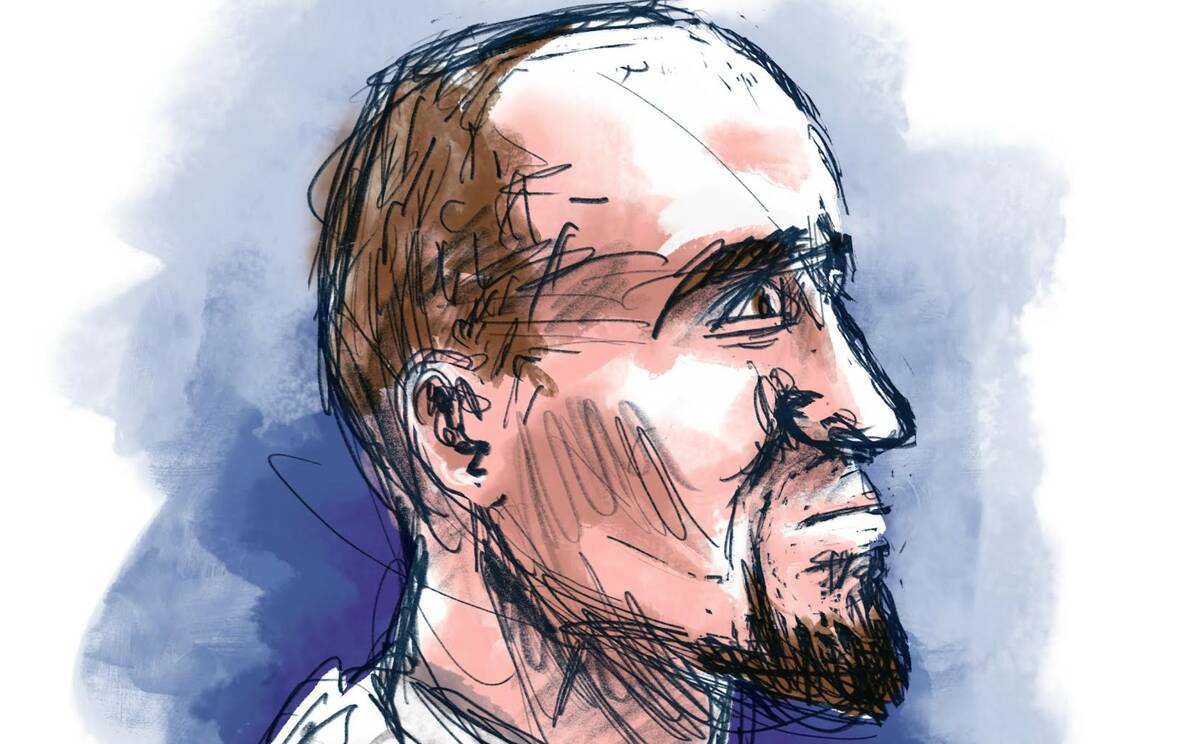Attorney accused in Ponzi scheme to remain in custody
Las Vegas attorney Matthew Beasley, who is accused of operating a $460 million-plus Ponzi scheme, will be held in federal custody until he goes to trial on charges of wire fraud and money laundering, a federal judge ruled Monday.
U.S. Magistrate Judge Cam Ferenbach had ordered Beasley released earlier this month, but District Judge Jennifer Dorsey granted an appeal from federal prosecutors to keep Beasley in custody, where he has been since he was arrested last year following a four-hour armed standoff with federal agents.
‘Difficult decision’
Assistant U.S. Attorney Eric Schmale argued Monday that Beasley remained a flight risk because of his mental state and alleged access to money he is accused of stealing through the Ponzi scheme.
“This is a difficult decision and a close call,” Dorsey said before ordering Beasley to remain in custody.
Schmale said Beasley, 50, could face a sentence of life in prison if convicted of the Ponzi scheme.
The scheme, which targeted more than 1,000 victims, started in 2017 and was pitched as an investment to earn annual returns of 50 percent by lending money to slip-and-fall victims awaiting checks after lawsuit settlements, prosecutors have said. An investigation by The Washington Post, in partnership with the Las Vegas Review-Journal, found that Beasley and his business partner Jeffrey Judd targeted members of The Church of Jesus Christ of Latter-day Saints.
Defense attorney Jacqueline Tirinnanzi said Beasley’s assets have been frozen due to a federal lawsuit by the Securities and Exchange Commission against Beasley and other alleged participants in the scheme, and that Beasley has been cooperative in efforts to recover the alleged victims’ money.
Millions unaccounted for
On Monday, prosecutors filed a declaration from the receiver in the SEC lawsuit stating there are currently $7 million to $10 million unaccounted for in the funds that Beasley received from the alleged scheme. Beasley also told the receiver about $300,000 in cash unaccounted for from the money he had stashed at his home.
Much of the prosecution’s argument Monday centered on the standoff at his Las Vegas home in March 2022. Prosecutors have said Beasley knew federal agents were coming to raid his home, and he came to the door holding a gun to his head. He then pointed the gun at agents, who shot him in the chest and shoulder.
Beasley refused to leave his home for about four hours after being shot, prosecutors have said. Schmale said Beasley confessed to the Ponzi scheme in a letter addressed to the FBI and while speaking with a crisis negotiator. He also made statements during the standoff such as, “I don’t want medical, I want to die,” Schmale said.
“The defendant still believes, a year later, that it was quote — ‘reasonable’ — to engage in a four-hour armed standoff with the FBI,” Schmale said Monday.
Tirinnanzi has argued in court documents that the government “mischaracterizes” the events leading up to the standoff. She said that agents did not have a warrant when they pushed through the home’s exterior door, which prosecutors have said was an unlocked gate, and then confronted Beasley in front of a glass door leading to the rest of his home.
“The alleged ‘armed confrontation’ was created by the illegal and unconstitutional actions of three FBI agents,” Tirinnanzi wrote in court documents.
Prosecutors dropped an assault on a federal officer charge against Beasley when he was indicted in connection with the Ponzi scheme. The judge on Monday did not make any rulings on the circumstances surrounding the standoff.
In an emailed statement Monday evening, Tirinnanzi expressed disappointment with the outcome of the hearing.
“Mr. Beasley should have been home two weeks ago when the magistrate judge ordered his release,” the statement said. “The government is relying on conduct from a case they themselves dismissed (when the FBI shot Mr. Beasley in his home). We look forward to presenting Mr. Beasley’s side of the story.”
Concerns about mental state
Although Beasley’s defense attorney argued he is no longer suicidal, prosecutors said he may be a danger to himself if he is released from custody. Schmale argued that mental health professionals have noted that Beasley has been prone to mood swings and angry outbursts at his ex-wife.
Dorsey said that there is evidence showing “some volatility” in Beasley’s mental state and that she did consider the circumstances of the standoff.
“The circumstances show a desire to avoid accountability,” she said.
If you’re thinking about suicide, or are worried about a loved one or friend, help is available 24/7 by calling or texting the Lifeline network at 988. Live chat is available at 988lifeline.org.
Contact Katelyn Newberg at knewberg@reviewjournal.com or 702-383-0240. Follow @k_newberg on Twitter.


















